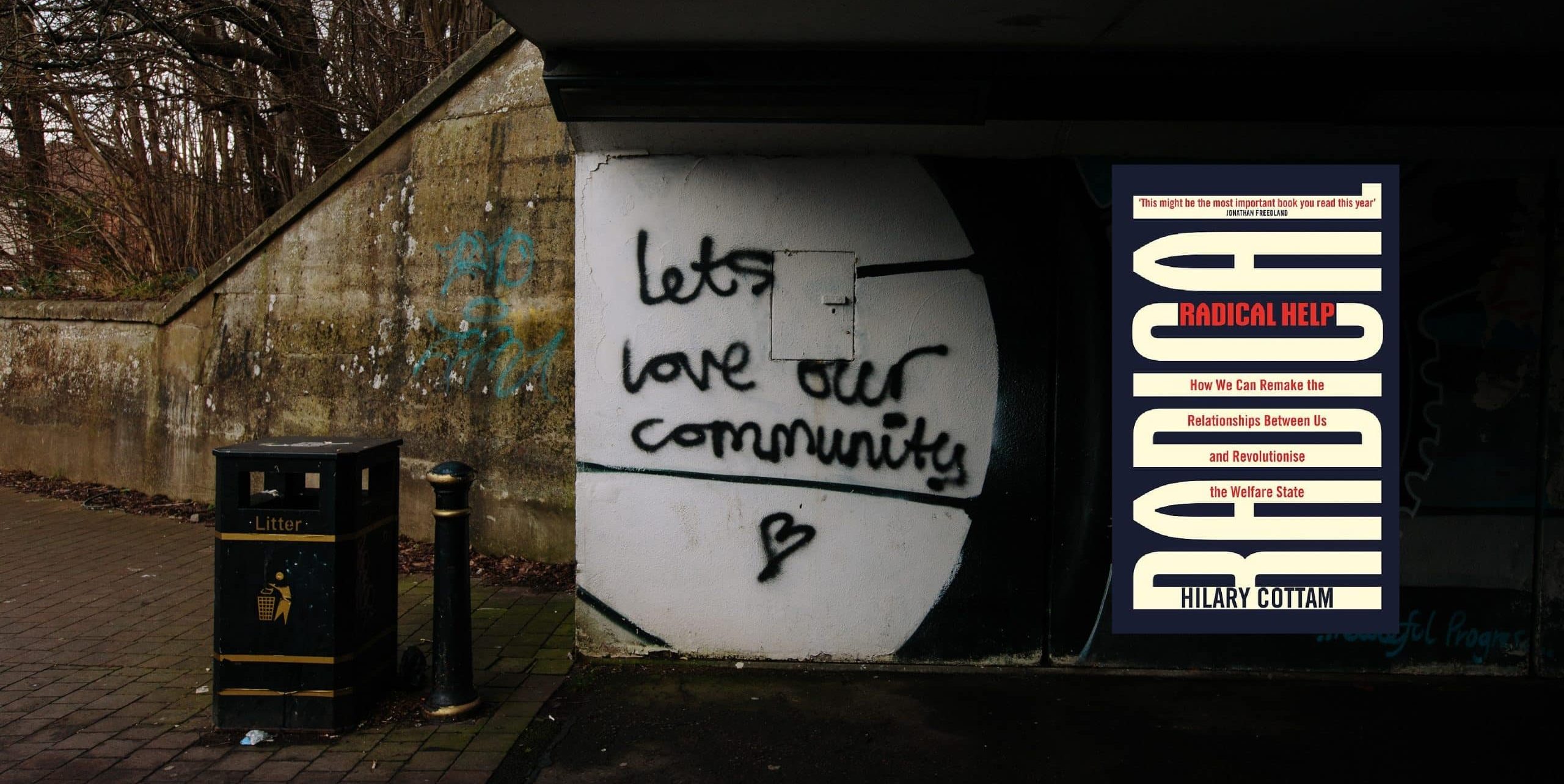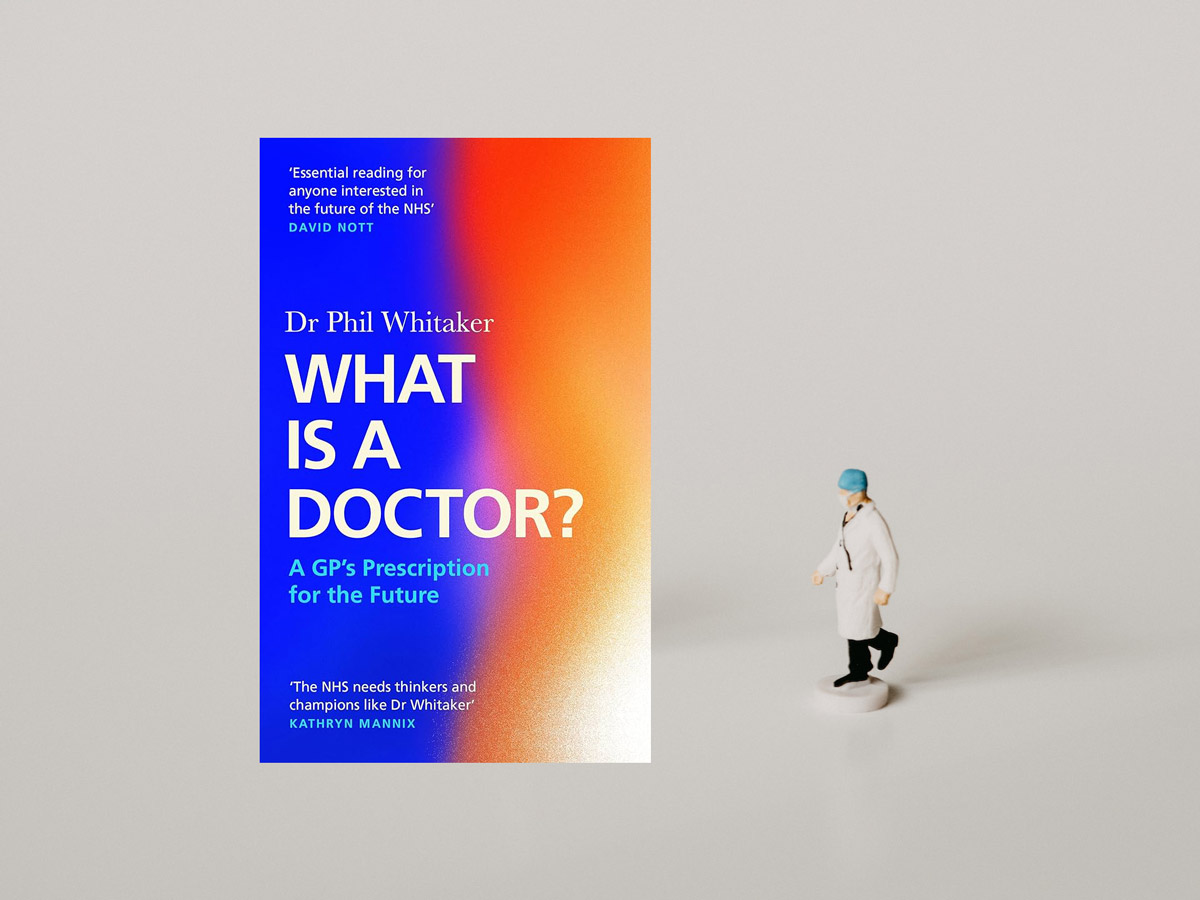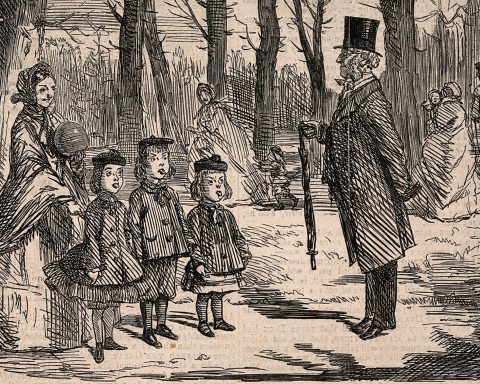
Upon finishing this book, my first thought was: why isn’t it on recommended reading lists in secondary schools, medical schools and the like? It resonates with, and provides explanation for, the experiences of us all in our various roles as citizens, patients, students or employees. I cannot overstate its relevance to all members of today’s society.
Hilary Cottam is a social activist with extensive experience of designing ‘collaborative and affordable solutions to some of the greatest social challenges’ in British, African and Latin-American communities. This book describes a project she founded in 2006, entitled ‘Participle’; ‘a ten-year experiment to design working exemplars of a new welfare state’.
Cottam starts by providing historical context; detailing how the current welfare state came into existence and factors that have led to its diminishing ability to cater for modern society. Her colloquial turn of phrase is engaging, and she provides the reader with a significant amount of information without being patronising. Relevant, relatable examples are sprinkled on top of each fundamental point: ‘An overworked receptionist will tetchily suggest you go to the Accident and Emergency department… or that you try again tomorrow’ or ‘The social workers… face the impossible demand of growing caseloads and the required hours of form-filling on computer systems that always seem to crash or freeze.’
Subsequent chapters are presented as case studies of each individual project designed under the ‘Participle’ umbrella, with clear context as to the need for reform within each component of the welfare state. To summarise each project in this review would very much spoil the reader’s experience of Cottam’s colourful narrative, but the following key messages emerged from the experiments:
• The welfare system is no longer fit for purpose; modern society is unrecognisable when compared with the post-war world for which it was designed: ‘The blunt truth is that we have reached the limits of our post-war services and institutions. The welfare state is out of step with modern troubles, modern lives and much of modern public opinion. A set of institutions and services designed for a different era is now threadbare and beyond repair.’ Cottam uses imagery of a bottomless bucket to illustrate the futility of recent efforts to mend the system. Similarly, the phrases ‘flog a dead horse’ or ‘paper over the cracks’ seem apt. ‘…it seems equally clear that sinking more funds into systems struggling to cope with problems for which they were never designed is not likely to be the best strategy.’ Reform needs both an understanding of the current context and the courage to reinvent, rather than tweak, existing processes: ‘The more we concentrate on merely re-working our existing institutions, the more we fail to see or understand the nature of the new challenges that surround us.’
Negotiating the current convoluted systems is confusing, and requires a significant amount of time and effort
• Negotiating the current convoluted systems is confusing, and requires a significant amount of time and effort from service users and providers alike: ‘Trying to get inside our welfare systems – to see a doctor, find a good nursery space, counselling for a troubled teenager or a place of kindness and care for an elderly relative – we feel baffled by the unwieldy systems, the labyrinthine processes and irksome rules that seem to stand between us and the support we need.
• ‘The welfare state has been reshaped as a service industry… “Free, perfect and now” – this is what the customer expects from a service business… Our current framework is transactional. It is about managing, handling, treating and transferring.’ This way of working can solve some ‘black and white’ issues such as treating reversible, acute episodes of illness, but not ‘how to live well and grow’ in the current landscape of multimorbidity and chronicity.
• Healthcare professionals do not have the time, resource or energy to deliver the care that they wish to, within the constraints of the current system: ‘These are committed individuals who are exhausted from trying to provide good help within institutions and frameworks that no longer seem to trust their professional judgment or provide the support and space that would make good work possible.’ Further, those working within the welfare state often, through no fault of their own, lose sight of the bigger picture, given their daily battle to work in crisis. Working in such conditions and cultures threatens their ability to retain the intention of such services at the forefront of their minds.
• The terms ‘above and beyond’ and ‘out of their way’ are often used to describe the actions of professionals considered to have excelled in some way. This points to a deep-rooted cultural issue; clearly we need to reframe perspectives so excellent care is viewed as people simply doing their job properly. To do this we also need supportive and facilitatory systems within which they work. Then perhaps it would not feel that professionals were swimming against the tide to provide a standard of care that should be considered the norm. ‘Most of us have a story to tell about a gifted teacher, a doctor who saved the life of someone close to us, the bravery of a police officer, or the nurse who went out of their way to help… But usually this brilliance comes in spite of the system, in spite of the demands and barriers of bureaucracy. Beneath the grace and kindness is the steady thrum of crisis.’
Cottam reduces the behemoth that is the NHS to a bite-sized problem
Cottam draws the book to a close by providing tangible principles to making change, borne out of the experiments. She also provides detailed insight into the design process, making the reader feel that they could replicate such work, contributing to the development of solutions. Cottam reduces the behemoth that is the NHS to a bite-sized problem, rendering progression much less intimidating, by highlighting the need for a cultural shift in how receptive we are to change. ‘Growth reduces the challenges of transition. The more we can grow, the more we can include people in these new and liberating structures, the smoother the transition.’
Variants on the word ‘relation’ are threaded throughout, and one of Cottam’s concluding messages emphasises the importance of relationships and relational care. ‘Relationships are the element that matters, the foundation of a new system, the new framework within which we must create… A relational way of working, thinking and designing is one that creates possibility for change, one that creates abundance – our capacity for relationships, like love, is infinite.’
Cottam is clearly a courageous, forward-thinking individual. She has a wonderful way of personifying complex issues to make them completely understandable and relatable. Her book ends with a call to arms, inviting readers to consider what modern-day help needs to look like, rather than papering over the cracks of our existing model. ‘The NHS is like a wonderful great-aunt to whom we are slightly in thrall. Venerable, knowledgeable, creaky, eccentric and sometimes annoying – but we can’t imagine life without her. And so we spend our time considering how she might be propped up.’
Featured book: Cottam E. Radical Help. London: Virago Press; 2019. ISBN: 9780349009094. RRP: £9.99
Featured photo by Mike Erskine on Unsplash








